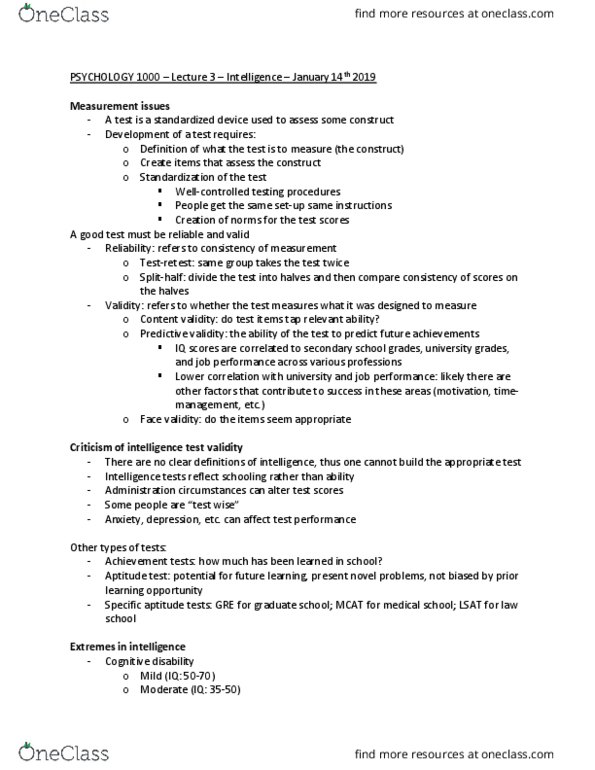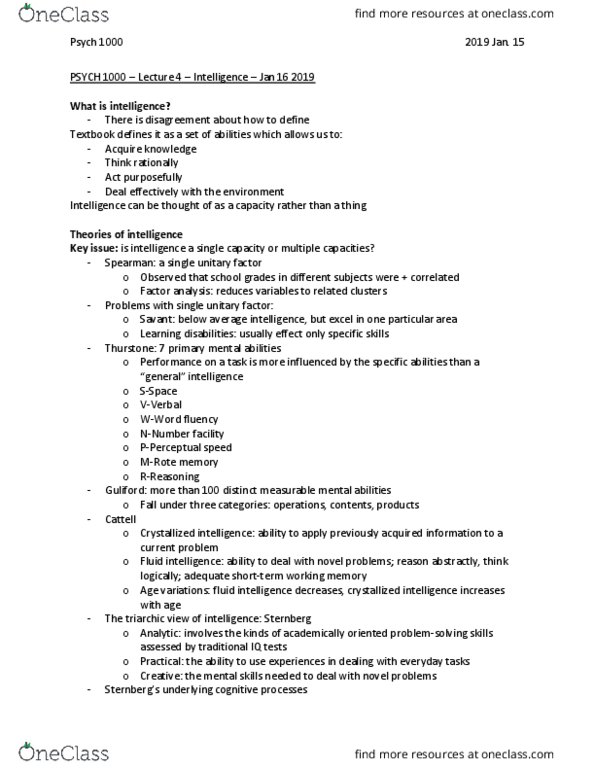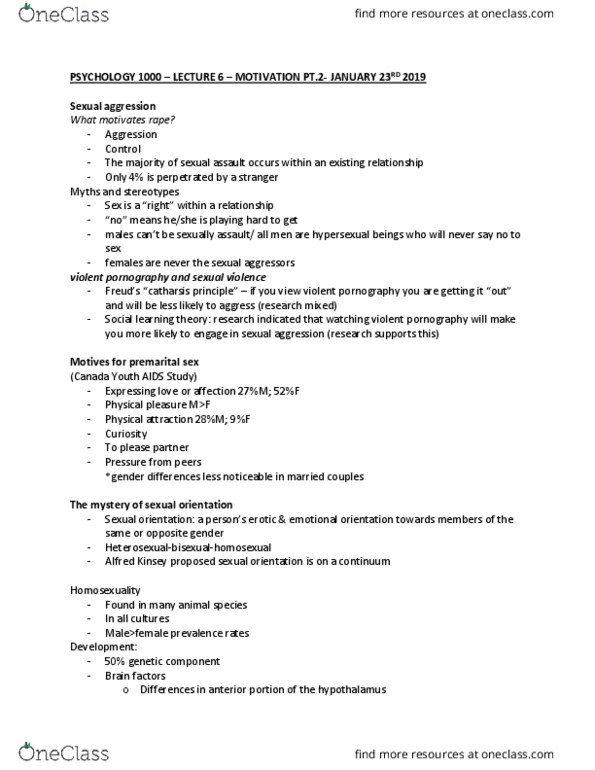Psychology 1000 Lecture Notes - Lecture 4: Fluid And Crystallized Intelligence, Learning Disability, Factor Analysis
PSYCH 1000 verified notes
4/24View all

Psych 1000 2019 Jan. 15
PSYCH 1000 – Lecture 4 – Intelligence – Jan 16 2019
What is intelligence?
- There is disagreement about how to define
Textbook defines it as a set of abilities which allows us to:
- Acquire knowledge
- Think rationally
- Act purposefully
- Deal effectively with the environment
Intelligence can be thought of as a capacity rather than a thing
Theories of intelligence
Key issue: is intelligence a single capacity or multiple capacities?
- Spearman: a single unitary factor
o Observed that school grades in different subjects were + correlated
o Factor analysis: reduces variables to related clusters
- Problems with single unitary factor:
o Savant: below average intelligence, but excel in one particular area
o Learning disabilities: usually effect only specific skills
- Thurstone: 7 primary mental abilities
o Performance on a task is more influenced by the specific abilities than a
“general” intelligence
o S-Space
o V-Verbal
o W-Word fluency
o N-Number facility
o P-Perceptual speed
o M-Rote memory
o R-Reasoning
- Guliford: more than 100 distinct measurable mental abilities
o Fall under three categories: operations, contents, products
- Cattell
o Crystallized intelligence: ability to apply previously acquired information to a
current problem
o Fluid intelligence: ability to deal with novel problems; reason abstractly, think
logically; adequate short-term working memory
o Age variations: fluid intelligence decreases, crystallized intelligence increases
with age
- The triarchic view of intelligence: Sternberg
o Analytic: involves the kinds of academically oriented problem-solving skills
assessed by traditional IQ tests
o Practical: the ability to use experiences in dealing with everyday tasks
o Creative: the mental skills needed to deal with novel problems
- Sternberg’s underlying cognitive processes
Document Summary
Psych 1000 lecture 4 intelligence jan 16 2019. There is disagreement about how to define. Textbook defines it as a set of abilities which allows us to: Intelligence can be thought of as a capacity rather than a thing. Spearman: a single unitary factor: observed that school grades in different subjects were + correlated, factor analysis: reduces variables to related clusters. Problems with single unitary factor: savant: below average intelligence, but excel in one particular area, learning disabilities: usually effect only specific skills. Thurstone: 7 primary mental abilities: performance on a task is more influenced by the specific abilities than a. General intelligence: s-space, v-verbal, w-word fluency, n-number facility, p-perceptual speed, m-rote memory, r-reasoning. Guliford: more than 100 distinct measurable mental abilities: fall under three categories: operations, contents, products. 2019 jan. 15: metacomponents: plan and regulate behaviour, performance components: actual mental processes used to perform a task, knowledge acquisition components: encode and store information.





